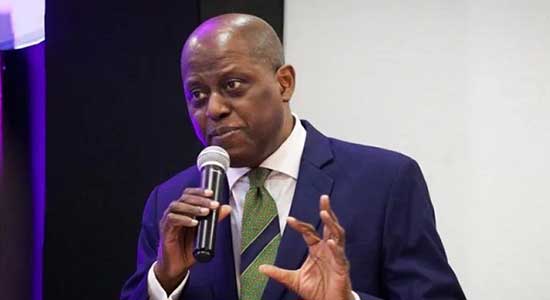The Governor of the Central Bank of Nigeria (CBN), Dr. Olayemi Cardoso, announced that foreign exchange (forex) inflows in the first quarter of 2024 were 136% higher than the total inflows recorded in 2023.
This remarkable increase is attributed to recent economic reforms and market liberalization efforts.
Dr. Cardoso made this announcement at the Vanguard Economic Discourse in Lagos on Thursday, an event themed “Reforms in The Era of Global Economic Uncertainties: Whither Nigeria.”
Represented by Blaise Ijebor, Director of Risk at CBN, Cardoso highlighted the bank’s commitment to utilizing all orthodox monetary policy tools to address inflation and enhance market transparency.
“We remain committed to using all the orthodox monetary policy tools available to us to address inflation,” Cardoso stated.
“We have also embarked on major reforms to liberalize the foreign exchange market, which has enhanced transparency, reduced arbitrage opportunities, promoted stability, and improved liquidity.”
One of the pivotal reforms included the settlement of all valid FX forwards, which Cardoso identified as a crucial factor in boosting stakeholder confidence.
This settlement has been instrumental in increasing forex flows into the country. The governor emphasized that the substantial growth in Q1 2024 forex inflows is a direct result of these reforms.
The CBN has taken proactive steps to sanitize and stabilize the forex market. This includes issuing multiple circulars to streamline operations and recently licensing 14 new International Money Transfer Operators (IMTOs) to bolster remittance inflows.
These measures aim to double remittance flows within the year, a target set by the CBN Governor.
“Our target, of course, is to double remittance flows within the year,” Cardoso remarked. “We have started that process to ensure that it happens.”
Cardoso also addressed the broader economic challenges posed by global uncertainties. He noted that global financial tightening has led to increased risk aversion, impacting investment flows into developing economies like Nigeria.
These challenges, coupled with domestic issues such as food inflation driven by rising transport costs, infrastructure constraints, and security concerns, have compounded economic pressures.
“The financial tightening that we have seen globally has been a result of monetary authorities taking steps to rein in inflation,” Cardoso explained. “This has had an impact on developing economies as investments shift to safer markets amidst uncertainties.”
The CBN Governor reaffirmed his commitment to repositioning the bank to deliver sustainable, data-driven solutions aimed at stabilizing the Nigerian economy. He emphasized the importance of collaboration between monetary and fiscal authorities to address the nation’s economic challenges.
“We have embarked on tightening the bank’s monetary policy to address inflationary pressure on the economy,” Cardoso noted. “I believe that the results will become evident in the near term, as we are already seeing a deceleration in inflation.”


 Naira4 weeks ago
Naira4 weeks ago
 Naira3 weeks ago
Naira3 weeks ago
 Naira3 weeks ago
Naira3 weeks ago
 Naira3 weeks ago
Naira3 weeks ago
 Travel4 weeks ago
Travel4 weeks ago


 Naira3 weeks ago
Naira3 weeks ago




 Naira1 week ago
Naira1 week ago
 Jobs4 weeks ago
Jobs4 weeks ago















